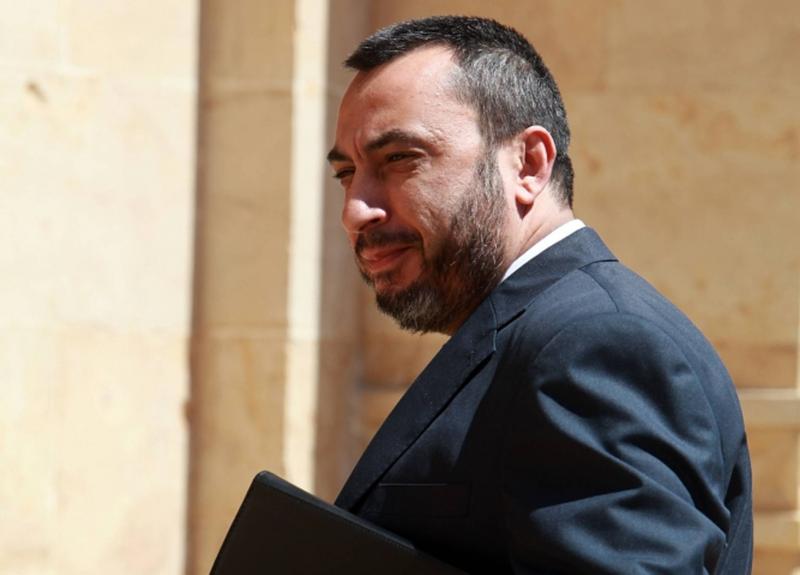Deputy Imad Al-Hout stated in an interview with "Our Audience" that "the position of the Islamic Group in Lebanon regarding what is happening in Gaza is the position of every honorable person in this world who believes that the Palestinian people have had their land occupied and have been displaced from their homes, and are currently facing the most heinous types of crimes under the watchful eyes—and even participation—of various governmental administrations."
Al-Hout said: "It is the right of the Palestinian people to struggle for the liberation of this land, and it is the duty of free peoples, of which the Lebanese people are a part, to support this rightful struggle by all available and effective means."
### Fajr Forces
Regarding the continuation of military operations within the Fajr forces, Al-Hout pointed out that "the resistance work within the Group is not a temporary matter; rather, it began with the Israeli invasion in 1982 and has continued to this day, amid the absence of a defense strategy for the Lebanese state, which we were among the first to call for." He added: "This work has always been directed towards the Israeli enemy, and we will continue to contribute to responding to any aggression on Lebanese soil with self-capacity, independently of any axes, and it has never been criticized for directing its weapons towards any other internal or external destination."
He said: "Since after October 7, 2023, we have witnessed Israeli assaults on Lebanese territory targeting civilians, journalists, and civilian facilities, amid the international community's inability to curb these aggressions, and, in many cases, even covering them. This has obligated the Group to fulfill its role in responding to this aggression and protecting our people in the villages of the south, to the extent of our abilities and according to rules that do not drag Lebanon into a comprehensive confrontation that has not been decided."
### Position on Hezbollah
Regarding his stance towards Hezbollah, Al-Hout emphasized that his political position "is not a personal stance, but rather is linked to the Group's general stance on internal and external files, including the position towards the performance of various Lebanese political forces, including Hezbollah. This difference in some political files is not a title for enmity but rather a natural state of the political process, and it does not preclude cooperation on other issues, which applies to Hezbollah and other political forces in Lebanon."
He continued: "Resistance is a self-choice for every individual or group in such circumstances, and each party assesses its capabilities and potentials. We ourselves, if Lebanon had a clear defense strategy, would not have taken the initiative but would have been part of this defense strategy."
The deputy viewed that "the slogan 'Lebanon's strength is in its weakness' is a failed slogan that should be replaced with 'Lebanon's strength is in its strength,' a strength stemming from a unified defense strategy, active diplomacy, and unity of public stance."
### Relationship with the Syrian Regime
Regarding his relationship with the Syrian regime, Al-Hout clarified that "our position on the events in Syria has not changed since day one: we accept what the Syrian people accept for themselves, without interference from us in the events. As for our resistance against the Israeli enemy, it is an independent resistance based on self-effort, not subject to any axis, and it does not concern us whether the Syrian regime is pleased or not."
### Decision of War and Peace
Deputy Imad Al-Hout pointed out that "the decision of war and peace, in terms of comprehensive confrontation, is not in our hands but rather in the Lebanese state's hands, but realistically the decision is in the hands of the Israeli enemy, considering its internal crisis and the political crisis of its Prime Minister, who may be tempted to escalate at the Lebanese front to cover its crises, all without justifications or rationales as some claim."
He noted that "the Islamic Group is an institution, not individuals; its decisions are institutional and consultative, thus it is unified through its organizational mechanisms. It is natural to have a variety of viewpoints and analyses, which enriches the internal discussion and matures decisions, indicating vitality rather than division."
### Southern Front
Al-Hout pointed out that "the situation in Lebanon is unclear due to several factors, including the madness of Israeli leadership, the irresponsibility of Lebanese leadership towards the presidential vacuum, and the absence of reformative and economic solutions to the crisis in Lebanon."
Concerning the southern front, he said: "All countries fear the repercussions of opening this front and its transformation into a wide regional front and are making every effort to prevent it from opening. However, in light of the political crisis of the Israeli Prime Minister and the internal crisis of the Israeli government, all possibilities remain on the table."




